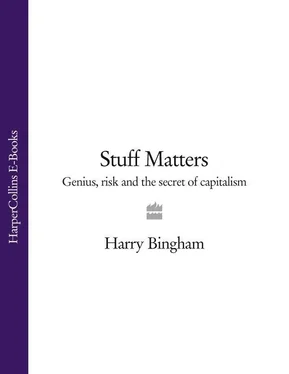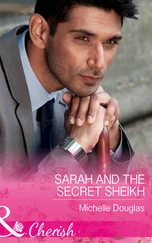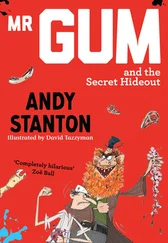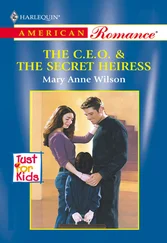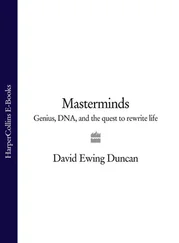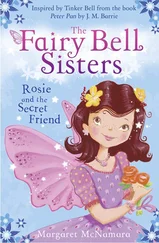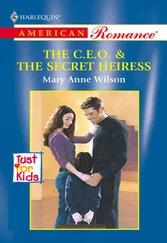So I quit my job again. I interviewed with a number of banks, but ended up back where I’d started at J.P. Morgan, where I spent several happy years as a banker in the mergers and acquisitions department. I made money. I worked with some very nice and able people. I enjoyed huge levels of responsibility and expectation. I might have gone on merging and acquiring for many more years to come but, at the end of the 1990s, my wife, Nuala, became ill, bed-bound, edge-of-life-and-death, terrifyingly ill.
So I moved on once more, from the City to the bedside. I cared for Nuala and wrote my first novel. I got an agent. I got a publisher. I found myself stumbling backwards into a new career, making the move from one of the best paid, most widely loathed occupations in existence to one of the worst paying, but most highly regarded ones.
People often ask me if I miss investment banking. I certainly enjoyed my time there, but enjoyment isn’t the deepest kind of satisfaction there is. Banking always felt like work – enjoyable, demanding, varied, responsible work, to be sure – but nevertheless something that nobody of sound mind would ever do for fun. Writing has never felt like that. For the last ten years or so, I’ve put in plenty of hours at the keyboard, and almost none of those hours have felt like work. I feel as though I’ve found some important part of my essence as a writer. That’s the good part. The bad part is that, for all but a very few authors, writing doesn’t provide enough income to live on. Most authors supplement their income in other ways and, as soon as Nuala was strong enough for me to give up my role as full-time carer and part-time author, I too rooted around for other ways to make a buck. In 2005, I set up a company called the Writers’ Workshop. The idea was that we’d offer editorial advice to first-time writers. To begin with there were just two of us, me and a friend, also a professional author. We built a website, advertised our services, and waited for manuscripts to start rolling in.
And roll they did. To my continuing astonishment, the venture’s been a success. Not the sort that buys a private jet and my own holiday island in the Caribbean but, in its own humble way, a success.
My reason for telling you all this is that my own eccentric personal journey through life connects back to that cooking pot. Over the last 350 years, some weird alchemy has taken place, which has utterly transformed the world and our expectations of being human. The Oxfordshire widow who lived in what is now my house seems poor to us today. Her few recorded possessions seem shockingly scanty. No books. No form of entertainment. No form of transport. Nothing mechanical. No complex method of lighting or heating. No soft furnishings. No decorative items that we know of. Nothing to bathe in. No form of time-keeping. No holidays. No health care worth the name. Rudimentary education at best. She’d have had salt, but no sugar, no spices, no tea, no coffee, not much meat. Particularly in winter and spring, her diet would have afforded terribly little variety. Some years, she’d have gone hungry too. She had a few tools for working the land, a few household items, and a minimal amount of furniture. That was all. When Kat encountered a tiny slice of that woman’s life, she instantly recognized it as being utterly, astonishingly different from her own.
Yet that widow wasn’t unusually poor. In 1674, the average Briton subsisted on somewhat less than $4 per day. Just to be perfectly clear, that number, the $4 a day, has been adjusted to give a figure directly comparable with today’s money. The average Zimbabwean today is about as well off as that widow and her peers. They don’t throw away broken cooking pots in Zimbabwe now, and they didn’t throw them out in seventeenth-century Britain.
If you think that sounds awful, bear in mind that Britain was then the second richest country in the history of world (the Netherlands was somewhat richer). Viewed over the entire span of humanity’s existence, seventeenth-century Britain was a place of extraordinary affluence, long lives, comfortable homes, educational and vocational opportunity. The Britain of that cooking pot represented close to the best that humanity had managed in its 199,650 years of existence. In the fifteen centuries following the birth of Christ, the average human lived on the equivalent of about $1.25 a day, an amount now regarded by economists as marking absolute poverty of the most pernicious sort. The kind of poverty that kills and starves, deprives and restricts.
These comparisons are worth hammering home because it’s so easy to lose sight of the miracle that has happened over the last 250 years or so, and which Kat called attention to by her fascinated reaction to that vanished world. Some extraordinary alchemy has transformed the human lot from being one of almost universal, grinding poverty to one of very widespread affluence. For sure the world still has far too many poor people in it, but it has a darn sight more rich ones than ever it used to. The miracle of wealth creation is now so well established, so taken for granted, that we start demanding more of it. Make Asia rich! Make Africa rich! Eliminate poverty! Eliminate infectious disease! Free health care for all! Put humans on Mars! Make me live to be a hundred! Low cost air fares, cheap motoring, and no climate change, please!
I’m not against those kinds of ambition. On the contrary, I’m entirely in favour of demanding a lot of ourselves, but what’s stunning is that we can voice these kinds of aspirations without sounding crazed. Human history can, if you like, be divided in two phases. The first phase lasted for approximately 199,750 years, and represents mankind’s existence in a world marked by generalized, extreme, brutish poverty, by horribly compromised life expectancy, by illiteracy and innumeracy, by men and women almost universally failing to achieve their potential.
The second phase, which has lasted 250 years so far, represents mankind’s experience of extremely rapid self-enrichment. The world we live in now is one where things are made in China, ordered by laptop, and delivered in an eyeblink; a place of iPods and cornflakes, hedge funds and research labs; a place where roofing materials are no longer cut from hedges and scythed from fields. This world – Kat’s world and ours – is mystifyingly complex, but somewhere in that complexity lies the philosopher’s stone which turns lead into gold.
Alchemy, however, has its dark side and on the weekend of Kat’s visit, that dark side was alive, well and destroying a bank near you. As London and New York convulsed in panic, I realized something shocking. I was a financially literate chap. I’d been an economist, a banker, and (in a very small way) an entrepreneur. Yet there was a respect in which I understood nothing at all about how the world works. I could sketch out supply and demand curves and explain the laws of comparative advantage. I could even have told you what an Asset Backed Security was and how Credit Default Swaps worked and how Lehman Brothers went bankrupt.
But all this was an understanding of the intellect, an understanding that left the rest of me entirely blank. The fact that I understood my own tiny niche in the capitalist system had blinded me to my massive ignorance about everything else. I hadn’t generally felt that ignorance, because my background had enabled me to sketch demand curves and blather about different types of security. Nevertheless, the extent of my unknowing was profound. It was though I’d read a million books about Italy without ever having been there.
In the weeks after Kat left us, as governments and central bankers started to mop up after the hurricane, I realized that I wanted to write a guidebook about the world of money. I wanted to understand, and not just at an intellectual level, the magic of the alchemy that has plucked the human race from extreme poverty to its current position of ever-expanding riches. I wanted to understand the storms that blow up out of nowhere, seeming to threaten every assumption which we once took for granted. I wanted to meet the people who make that world turn: multimillionaire entrepreneurs and Indian shift-workers, small-time manufacturers and big company CEOs. I wanted to get to the heart of the miracle, the miracle that has transformed a poor and brutish world into an ever richer and more liberated one. And I wanted to explore the culture of this world, the deep rhythms that make it tick. Above all, I wanted to come to know it the way that a traveller might, with time, come to know Italy.
Читать дальше
